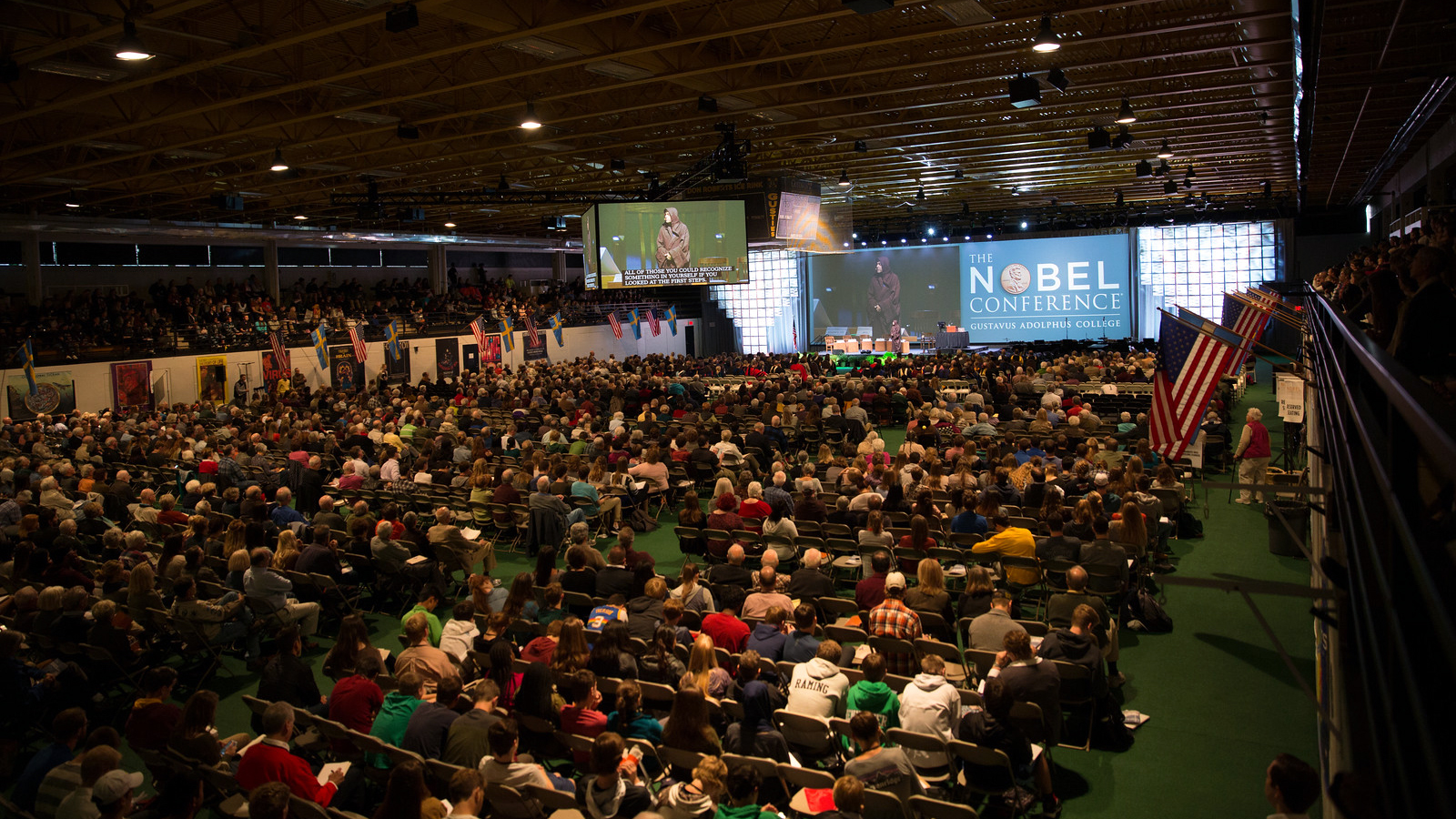Gustavus Adolphus College will host the 53rd annual Nobel Conference on its Saint Peter, Minn. campus October 3-4. “Reproductive Technology: How Far Do We Go?” will cover issues such as gene editing technology, “three-parent babies,” and male contraception while exploring the complex ethical questions that accompany these technologies that can fundamentally impact human experience.
“We are incredibly excited to bring together this amazing group of scientists and experts to grapple with these complex issues,” Nobel Conference Chair and Associate Professor of Classics and Gender, Women, and Sexuality Studies Yurie Hong said. “Our hope is that our attendees and viewers come away from the conference with a deeper understanding of the many implications of reproductive technology and the importance of thinking about science from multiple perspectives.”
The two-day conference will bring together leading experts from Princeton University, the National Institutes of Health, University of California-Berkeley, Newcastle University, and the World Institute on Disability to address questions such as:
- How have scientific and technological discoveries assisted, suppressed, and transformed reproduction, and how will they continue to shape age-old debates about parents and children, individuals and society?
- How safe are new techniques and what might be their impact on human health and social health?
- Who decides which technologies to develop, how they are funded, and who should have access to them?

Ruha Benjamin of Princeton University will kick off the conference with a justice-oriented approach to reproductive technologies. Jacob Corn, Diana Blithe, Alison Murdoch, Marsha Saxton, and Charis Thompson will discuss the many issues — both scientific and social — that stem from these developing technologies, and Jad Abumrad, host of Radiolab on National Public Radio, will serve as the closing speaker.
Based on audience and speaker feedback, a change to the schedule this year will include expanded panel discussions and question-and-answer sessions in order to better explore the many issues at play in the quickly evolving field of reproductive technology.
Visit the Nobel Conference website for more information about speakers and topics.
CONFERENCE SCHEDULE
(All events take place in the Lund Center Arena unless otherwise listed*)
Tuesday, October 3
8:30 a.m. — Doors Open
9:30 a.m. — Academic Procession and Opening Ceremony | Welcome from Gustavus President Rebecca M. Bergman
10 a.m. — Lecture by Ruha Benjamin | Rethinking Reproduction, Re-imagining Technology
10:30 a.m. — Panel Discussion and Audience Question-and-Answer Session
11:30 a.m. — Lunch Break
1 p.m. — Lecture by Jacob Corn | CRISPR Gene Editing
1:45 p.m. — Lecture by Marsha Saxton | Disability Rights Meets DNA Research
2:30 p.m. — Panel Discussion and Audience Question-and-Answer Session
4 p.m. — Dinner Break
6:30 p.m. — Policy-driven improv by The Theater of Public Policy | To Fertility and Beyond
8 p.m. — Music at the Nobel Conference | Bjorling Recital Hall*
Wednesday, October 4
8:30 a.m. — Doors Open
9:30 a.m. — Lecture by Alison Murdoch | Reproductive Technology Regulation in the UK: 40-Year Review
10:15 a.m. — Lecture by Diana Blithe | Prospects and Pipeline for Male Contraception
11 a.m. — Panel Discussion and Audience Question-and-Answer Session
12 p.m. — Lunch Break
1:30 p.m. — Lecture by Charis Thompson | The End of the World As We Know It? Human Technology Futures in a Time of Automation, Augmentation, and Deselection
2 p.m. — Panel Discussion and Audience Question-and-Answer Session
2:45 p.m. — Closing Plenary Panel | Future Challenges, Future Questions in Reproductive Technology
6:30 p.m. — Nobel Banquet | Alumni Hall, Johnson Student Union* | Separate Ticket Required
7:30 p.m. — Closing Lecture by Jad Abumrad | Reproductive Technology and the Radiolab Podcast
Tickets
Tickets for the 53rd Nobel Conference are still available. Tickets for the conference and meals can be purchased online at gustavustickets.com through Friday, September 29, or by calling the Gustavus Office of Marketing and Communication at 507-933-7520.
Livestreaming
The Nobel Conference will be livestreamed on the Nobel Conference website. Lectures will be archived and available for viewing on request beginning in mid-October.
About The Nobel Conference
Following the dedication of the Alfred Nobel Hall of Science in 1963 at Gustavus, the Nobel Foundation granted approval for an annual science conference to be held at the College. For five decades, Gustavus has organized and hosted The Nobel Conference, which draws about 4,500 people to the college campus in Saint Peter, Minn. The conference links a general audience, including high school students and teachers, with the world’s foremost scholars and researchers in discussion centered on contemporary issues relating to the natural and social sciences. The Nobel Conference is the first ongoing educational conference of its kind in the United States. It is made possible through income generated by a Nobel Conference Endowment and the support of annual conference contributors.

Leave a Reply
You must be logged in to post a comment.